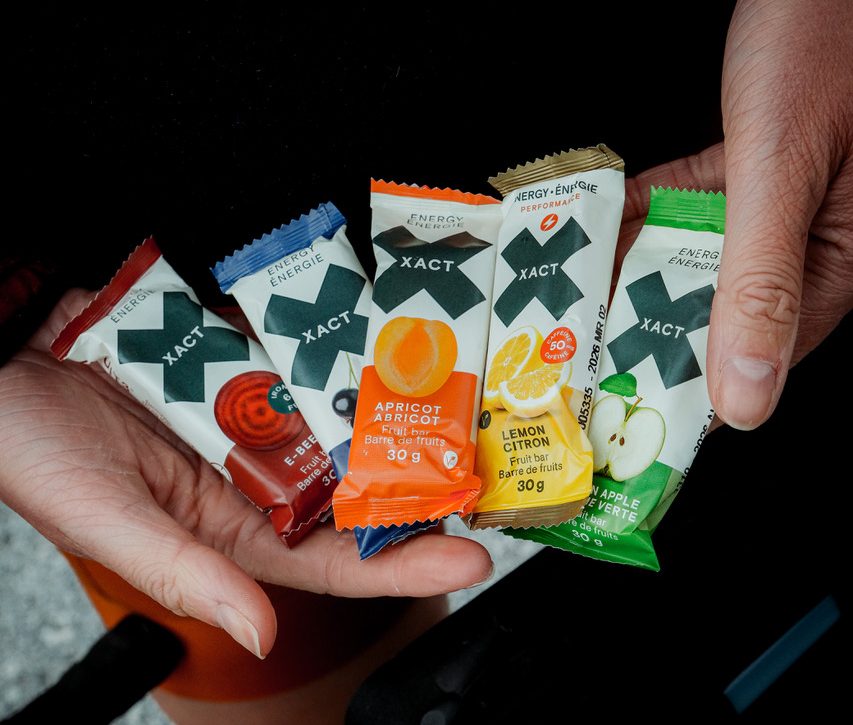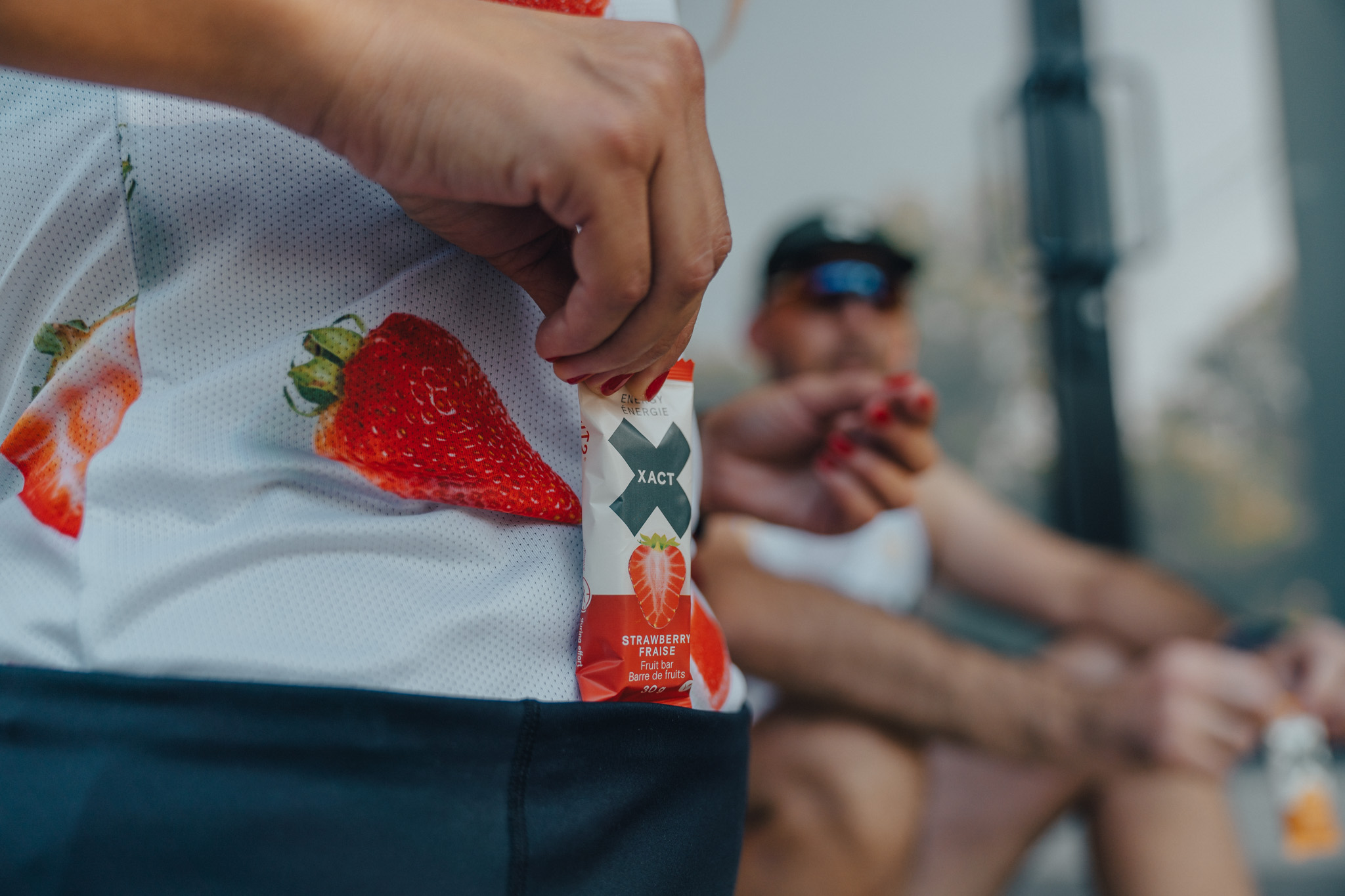

Ever felt “off” halfway through a long run? Or finished a training session with an upset stomach? Nutrition plays a key role in your performance, just as much for comfort and enjoyment as for endurance. Whatever distance your training for, eating the right foods at the right time can make a big difference.

Before a run, it’s all about giving your body easily digestible carbohydrates. These carbs help top up your muscle glycogen stores, the main fuel your body uses during exercise.
Here are some good pre-run snack options:
Ideally, this snack should be eaten 30 to 60 minutes before your run, depending on how much you’re eating and how well you digest it. Avoid high-fibre, high-fat, or high-protein foods right before running—they slow digestion and can cause discomfort.
Once your run hits the one-hour mark, it’s important to replenish carbs to maintain your energy, keep up the intensity, and delay muscle fatigue.
Here are some easy-to-carry options for endurance:
Our free, science-backed XACT Carb Calculator provides clear fueling guidance for training and racing.
Just enter your race goal duration and target intensity to get 3 key recommendations:
These insights fuel performance, preventing bonking and enabling breakthroughs.
👉 Check out the Carb Calculator
Every runner has their preferences, so it’s key to try these out during training to make sure your body tolerates them well. You don’t want to experiment for the first time on race day!
For very long runs (typically over 2.5 hours), adding a bit of protein can help reduce muscle breakdown and kickstart recovery even before the run is over. It may also help with feeling full and keeping your energy stable. Aim for about 5–10 g of protein per hour, along with your carb intake.
Examples:
As always, the golden rule: test it in training first!

Look for the carb content per serving: aim for about 30–45 g one hour before the run, and 30–60 g per hour of effort during runs longer than an hour. Products like XACT Energy bars provide around 25 g, making them easy to portion and integrate.
Keep in mind that needs vary depending on effort duration, intensity, and type. A nutrition expert can help tailor recommendations to your personal goals.
Choose low-fibre (under 2 g) and low-fat options for faster digestion. Too much fibre or fat can slow things down and cause gastrointestinal discomfort mid-run.
Fewer ingredients, fewer additives. A shorter, cleaner list usually means a less processed product and better digestion—which matters when you’re running, but is also a good everyday habit.
The best fuelling products are compact, quick to open, and easy to consume one-handed. Look for lightweight, individual-serving formats.
Your simple, science-backed fueling guide: how many carbs/hour, in what form (liquid, gel, or solid), and whether you should train your gut for better absorption.
Stock up on ready-to-go snacks:
Having options handy helps you stay consistent and avoid last-minute scrambles.
Set reminders on your watch or phone to take in carbs every 30 to 45 minutes during your run. Don’t wait until you’re hungry or thirsty—that means your body’s already slowing down.
On race day – use the aid stations. Review the on-course offerings in advance to plan your use of these resources.
Everyone’s different. What works for a friend might not work for you. Use your training runs to experiment and find the right taste and digestion combo for you. If you will take advantage of what’s offered at on-course aid stations, test those products during your long runs.
Eating well before and during a run helps you boost your energy, comfort, and performance. It’s not about following a one-size-fits-all plan, it’s about discovering what works for you and your running goals.
Congratulations on finishing your race! To kickstart your recovery, consume 500-1000 ml of fluids, ideally containing electrolytes and carbohydrates.
Follow this with a snack that combines carbohydrates and protein. Don’t forget the fluids and once you’ve replenished your body, you’ll be ready to enjoy that well-deserved post-race celebratory beverage of your choice!